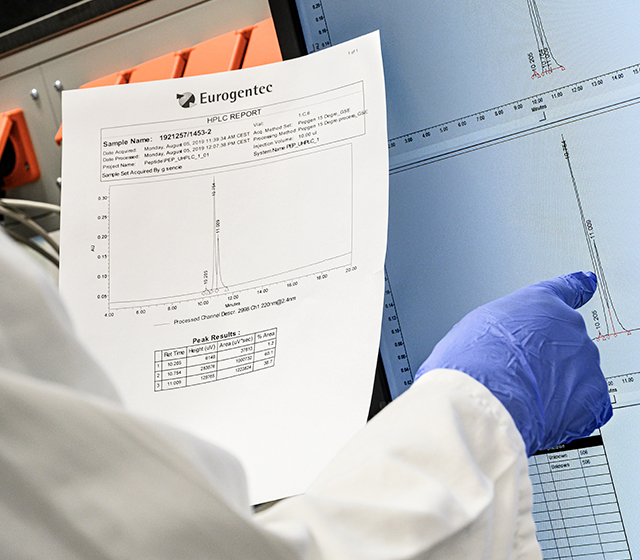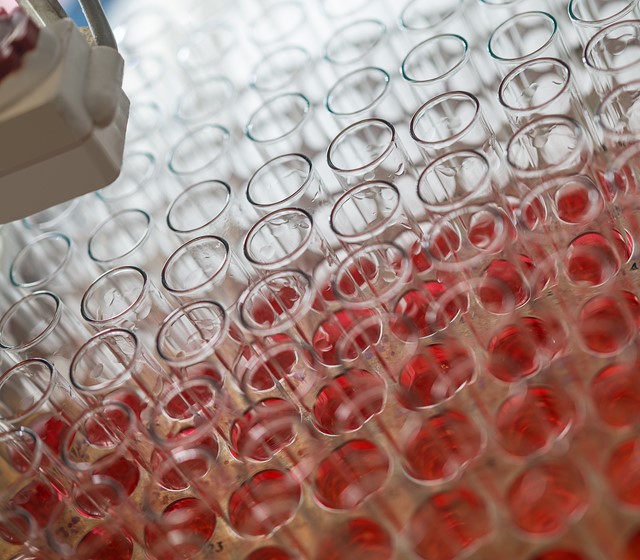Custom Peptides
Lipopeptide Modifications
We have developed novel methods for the synthesis and purification of hydrophobic peptide modifications, including lipopeptides. They yield high peptide purities not achievable using standard Solid Phase Peptide Synthesis (SPPS) and preparatory HPLC methods.
What are lipopeptides?
Lipopeptides are linear or cyclic peptides that are conjugated (via amide, thioether, or thioester linkages)
to lipids or long aliphatic chains, such as myristic acid, palmitic acid, prenyl groups, geranyl groups,
farnesyl groups, and geranylgeranyl groups.
Addition of a lipid chain formed by three (farnesyl) or 4 (geranylgeranyl) isoprene units to a free thiol group.
Myristoylation and palmitoylation are post translational modifications
where myristoyl or palmitoyl groups are covalently attached by an amide bond or thioester bond
to the aliphatic amino-group of residues or to a mercaptan-group of cysteine residues in peptides.
Peptide Specifications
- Length : Up to 60 amino acids
- Purity : ≥95%, ≥90%, ≥85%, ≥70% or crude
- Quantity : 1 mg minimum up to gram quantities, delivered as gross weight or net weight
Applications
Recent literature has shown that such lipopeptide modifications help in the study of several biological activities such as cellular uptake, drug delivery, immune function, membrane targeting, localization etc.
- Proper functioning of cellular mechanisms/signal transduction
- Antimicrobial or antifungal properties
- Protein-protein interactions
- Protein-lipid interactions
- Membrane targeting & localization
- Cell permeability
Featured Citations
KRAS Prenylation Is Required for Bivalent Binding with Calmodulin in a Nucleotide-Independent Manner.
Agamasu C, Ghirlando R, Taylor T, Messing S, Tran TH, Bindu L, Tonelli M, Nissley DV, McCormick F, Stephen AG.
Biophysical journal. 2019 Mar 19;116(6):1049-63. https://doi.org/10.1016/j.bpj.2019.02.004
From AnaSpec (Eurogentec's US subsidiary): KSKTKC-FMe, AAAAC-FMe, KSKTKC-geranyl methylated (GMe), and KSKTKC-prenyl methylated (PMe)
CD1d-restricted T cell activation by nonlipidic small molecules.
Van Rhijn I, Young DC, Im JS, Levery SB, Illarionov PA, Besra GS, Porcelli SA, Gumperz J, Cheng TY, Moody DB.
Proceedings of the National Academy of Sciences. 2004 Sep 14;101(37):13578-83.
From AnaSpec (Eurogentec's US subsidiary): Polyclonal human T cells were derived with many antigens, including a mixture of synthetic lipopeptides

